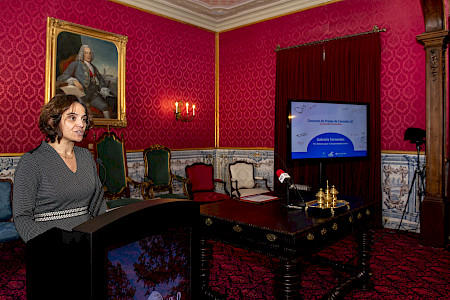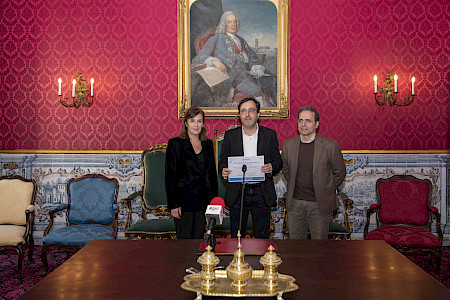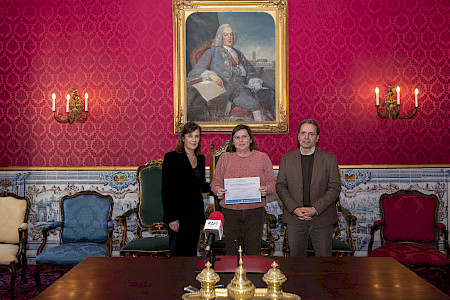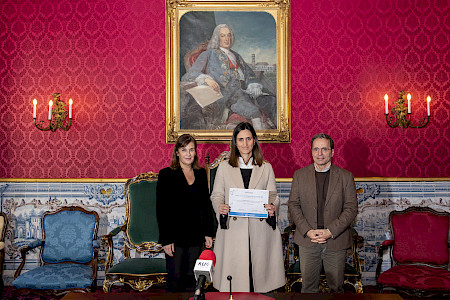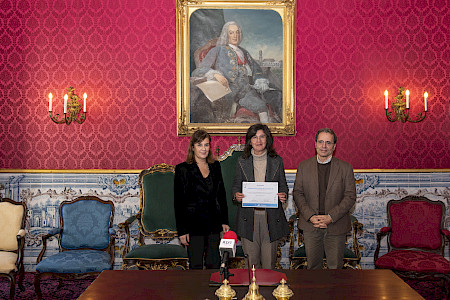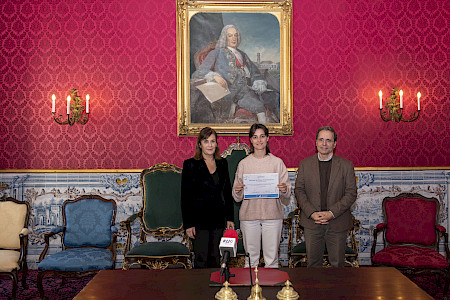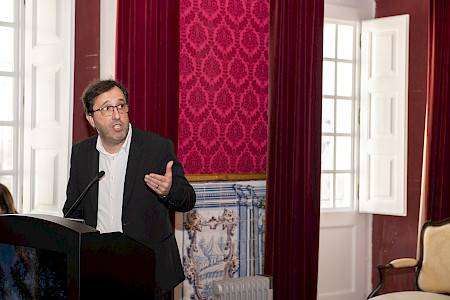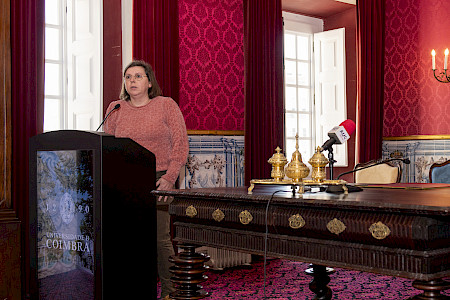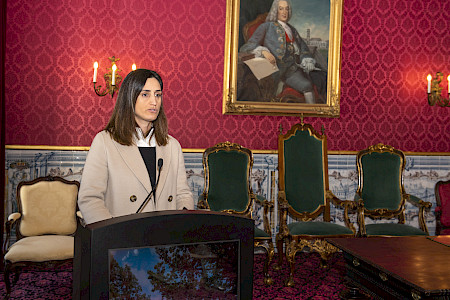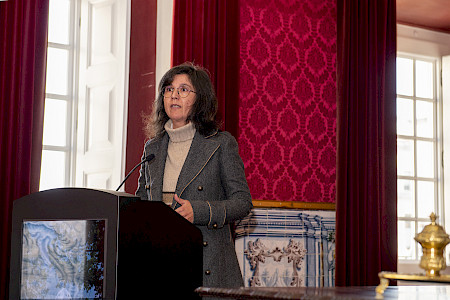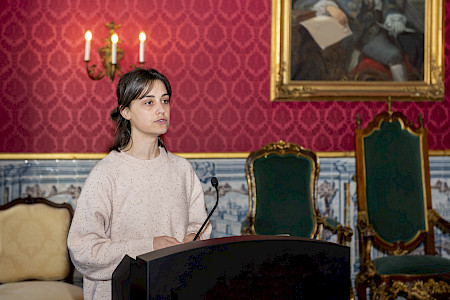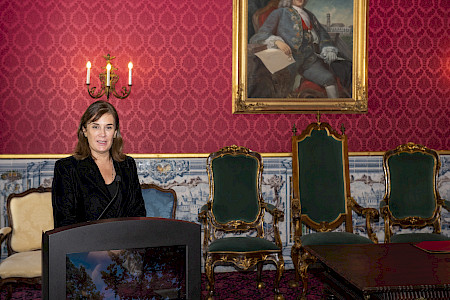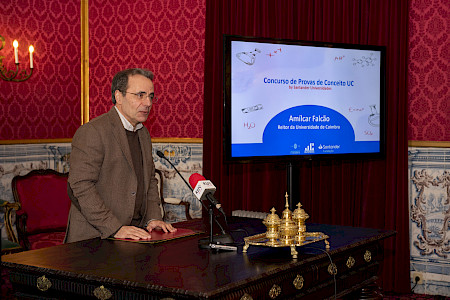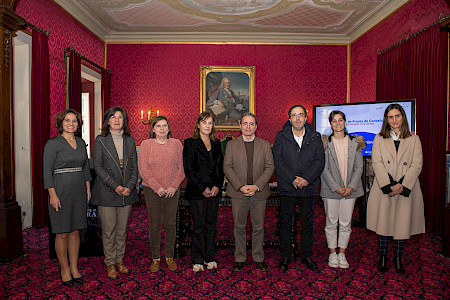UC Proof of Concept Competition awards a total of 100,000 euros to 5 inventions.
The initiative, supported by Santander Universidades, received 27 proposals.
Abridged version in English: Diana Taborda
The UC Proof of Concept (PoC) competition, organised by UC Business with the support of Santander Universidades, has awarded €20,000 in funding to five selected projects. The official ceremony took place on the 20th of December in the Senate Room of the UC Rectory.
The winning projects covered a wide range of ideas, including the use of organic materials for batteries, the coating of surfaces with recycled rubber from used tyres, the development of in vitro methods for tumours, the modification of contact lenses with nanotechnology, and a solution to simultaneously reduce plastic pollution and deaths from bacterial infections.
The competition's objective was to maximize the value of inventions and hence facilitate their progression along the Technology Readiness Levels, (TRL) scale. This globally used tool measures the readiness of an invention or technology from conception to commercialisation.
Winning Projects
Green ECOREDOX
Development of efficient Aqueous organic Redox Flow Batteries (AORFBs) with new organic active material, removing the need for expensive, corrosive, or toxic materials.
Lead Promoter: João Sérgio Seixas de Melo
RubLiq
Reverse-engineered rubber reprocessing technology that enables the use of end-of-life materials in a diverse range of applications beyond traditional ones.
Lead Promoter: Luísa Durães
3BBBioprinting
Evaluation of drug delivery for glioblastoma using advanced nanotechnology currently available at UC, based on an innovative in vitro bioprinting model.
Lead Promoter: Carla Vitorino
NanoLensTech
Development of a medical device through the modification of commercial hydrophilic contact lenses.
Lead Promoter: Elisa Julião Campos
CO2PhotoBioPlas
Using carbon dioxide as a renewable and non-toxic reagent to produce photosensitive biocomposite plastics.
Lead Promoter: Andreia Gonzalez

